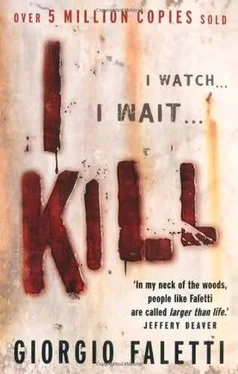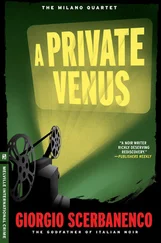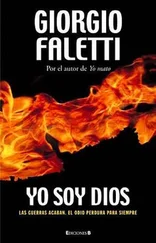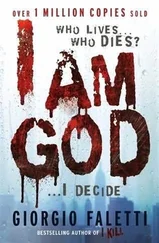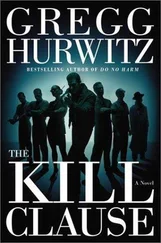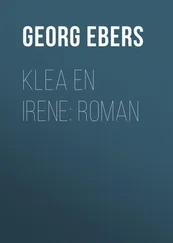There is a man sitting in an armchair in the dark, in the large, silent apartment. He had asked to be left alone, he who always had a horror of solitude, of empty rooms, of the dark. The others had left after asking him one last time, with a note of apprehension, if he was really sure he wanted to stay there without anyone to take care of him. He had answered yes, reassuringly. He knew that spacious apartment so well that he could move around freely without having anything to fear.
Their voices fade away in the sound of departing steps, a door that closes, a lift going down. Little by little, the sounds become silence. So now he is alone, he thinks.
The smell of the sea enters through the open window. He outstretches his hand and turns on the light on a table next to him. Almost nothing changes before his eyes, which are now a theatre of shadows. He presses the button again. The light goes off with the hiss of a sigh without hope. The man sitting in the armchair thinks again about what awaits him. He will have to become accustomed to the smell of things, to their weight and to their voices, when they are all drowned in an identical colour.
The man sitting in the armchair is practically blind.
There was once a time when it was not so. There was a time when he lived in the light. A time when his eyes defined a point in front of him to which his body would leap forward, as if dancing on air.
It was so brief, his dance.
From the birth of his passion to the anxious discovery of his talent, to the astonishment of the world at its confirmation, there were more moments of pleasure in the twinkling of an eye than others would ever see in a lifetime.
But time cheated him and suddenly took away with one hand what it had profusely given with the other. He still carried the memories in his extinguished eyes, memories from around the world. An infinite number of curtains opening in silence and closing with the applause of every success. Curtains that would never reopen.
Farewell, idol of the dance.
The man runs his hand through his thick, shiny hair.
His hands are his eyes now.
He touches the armchair’s rough fabric; feels the soft fabric of his trousers, on his muscular legs, the silk of the shirt over the chiselled line of his chest. He feels his smooth cheek shaved by another, until he meets the colourless trickle of a tear that streaks his face. The man had asked to be left alone, he who always had a horror of solitude, of empty rooms, of the dark.
Now suddenly he feels that he is not alone in the apartment. There is not a noise, not a breath, not a footstep. It is a presence he perceives with a sense he did not know he had, like the primitive instinct of a bat. One hand gives, the other hand takes away.
He can sense many more things now.
The presence turns into a light step. Agile, almost noiseless. Calm, regular breathing. Someone is crossing the apartment and coming closer. Now the noiseless step has stopped behind him. He controls his instinct to turn and look. It would be useless.
He smells the perfume, clean skin mixed with good cologne. He recognizes the cologne, but not the person. Eau d’Hadrien, by Annick Goutal. A scent of citrus, sun and sea breeze. You bought it once for Boris in the shop near the Place Vendôme, the day after your triumph at the Opéra. When you still…
The steps resume. The stranger walks past his armchair that has its back to the door. He can make out the shadow of his body as he comes before him. The man sitting in the armchair is not afraid. He is simply curious.
‘Who are you?’
A moment of silence, and then an answer in a deep, resonant voice.
‘Does it matter?’
‘Yes, it matters to me, very much.’
‘My name would mean nothing to you. Who I am is unimportant. I want to be certain that you know what I am and why I’m here.’
‘I can imagine. I’ve heard of you. I was waiting for you, I believe. Perhaps, deep down, I was hoping you would come.’
‘I’m here now,’ the same deep voice, so rich and harmonious, answers from the dark.
‘I suppose there is nothing I can say or do.’
‘No, nothing.’
‘So, it’s over. I think it’s better this way, in a certain sense. I would never have had the courage.’
‘Would you like some music?’
‘Yes, I think so. No, I’m sure of it. I want music.’
He hears the hum of the CD player opening and then closing, enhanced by the silent darkness. The man has not turned on the light. He must have the eyes of a cat if the weak glimmer from outside and the display of the CD player are enough to guide him.
A moment later, the notes of a cornet flutter through the room. The man sitting in the armchair does not recognize the music, but the tones of that strange instrument remind him of Nino Rota’s melancholy melody in Fellini’s La Strada. He danced to that music at La Scala in Milan, at the beginning of his career. It was a ballet based on the movie, with a prima ballerina whose name he did not remember, only the incredible grace of her body.
He turns to the darkness where the music comes from, the same darkness that is in the room and in his eyes.
‘Who is it?’
‘His name is Robert Fulton. A great musician…’
‘I can hear that. What does he mean to you?’
After a long, motionless silence, the deep voice comes from the darkness right beside him. ‘An old memory of mine. Now it will be yours as well.’
‘Can I ask a favour?’
‘Yes, if it’s possible.’
‘May I touch you?’
A slight swish of fabric. The man standing bends down. The man sitting feels the warmth of his breath, a man’s breath. A man who, at another time and on another occasion, he might have tried to know better.
He stretches out his hand and places it on that face, running over it with his fingertips until he touches the hair. He follows the line of the face, and explores the cheekbones and forehead with his fingertips. His hands are his eyes now, and they see for him.
The man sitting is not afraid. He is curious. Now he is only surprised.
‘So, it’s you,’he murmurs.
‘Yes,’ answers the other, straightening up.
‘Why do you do it?’
‘Because I have to.’
The man sitting is content with this answer. He, too, did what he felt he had to, in the past. He has only one last question for the other. It is not the end that frightens him, only the pain.
‘Will I suffer?’
He has no way of seeing the man take out a gun with a silencer from a canvas bag slung around his neck. He does not see the burnished metal barrel pointed at him. He does not see the menacing reflection in the weak light coming from the window.
‘No, you won’t suffer.’
He does not see the knuckles whiten as the finger squeezes the trigger. The man’s answer mixes with the smothered hiss of the bullet that pierces his heart.
‘I have no intention of living like a prisoner until this is over. Most of all, I refuse to be used as bait!’
Roby Stricker put down his glass of Glenmorangie and went to look out the window of his apartment. Malva Reinhart, a young American actress sitting on the couch opposite, rolled her magnificent violet eyes, the feature of many a close-up shot, and looked from him to Frank. She was bewildered by the whole thing and didn’t say a word. She seemed to be still playing one of her characters, although her glances were more direct and her cleavage lower. The aggressive attitude she had displayed when Frank and Hulot had stopped them outside Jimmy’z, the most exclusive disco in Monte Carlo, was gone.
They had been standing in the plaza next to Sporting Club d’Été, just outside the glass doors of the club, to the left of the blue neon sign. Malva and Roby were speaking to someone, but as Frank and Hulot had got out of their car and approached them, the person had left and they were alone in the glare of the headlights.
Читать дальше
